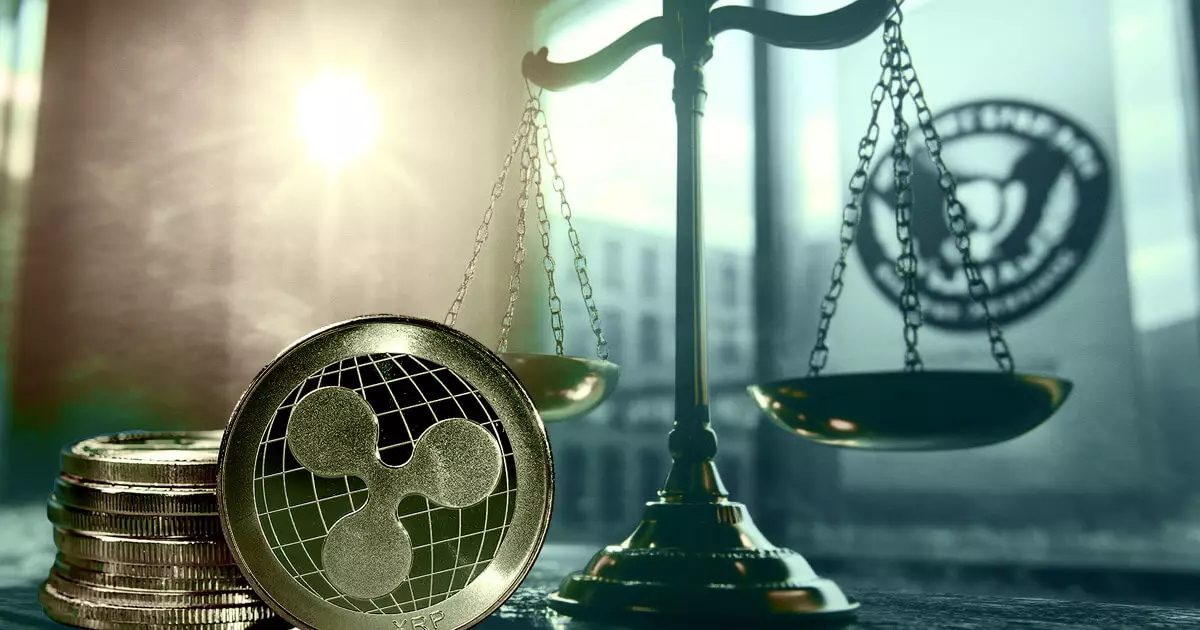The ongoing legal battle between Ripple Labs and the U.S. Securities and Exchange Commission (SEC) is emblematic of the broader struggle for regulatory clarity in the cryptocurrency landscape. The SEC’s recent actions, particularly its filing of a Civil Appeal Pre-argument statement (Form C) on October 17, further complicate the already intricate relationship between regulatory bodies and the burgeoning digital asset market. This legal confrontation has drawn considerable attention, not only from industry stakeholders but also from investors and legal experts who recognize the potential ramifications for the entire sector.
Judge Analisa Torres’s previous rulings have partially favored Ripple, affirming that the company’s sales of XRP to retail investors trading on exchanges do not constitute securities violations under U.S. law. However, the judge’s decision regarding institutional sales presented a contrasting narrative, marking a pivotal point for both Ripple and the SEC. This duality—in which certain transactions are deemed compliant while others are not—undoubtedly stirs significant debate about the classification and regulation of cryptocurrencies.
The SEC’s latest filing illustrates a clear focus on contesting specific elements of Judge Torres’s rulings rather than disputing the broader categorization of XRP as a non-security for retail investors. This selective appeal indicates a strategic approach on the part of the SEC, as it seeks to contest the conditions under which Ripple conducted higher-volume and more institutional sales of XRP. The regulator’s move to challenge Ripple’s programmatic sales through digital platforms is particularly noteworthy; it raises fundamental questions about the legality of such transactions and the responsibilities of companies operating in the digital asset space.
Moreover, by targeting Ripple executives Brad Garlinghouse and Chris Larsen, the SEC broadens its scope of pursuit, signifying its intent to hold individuals accountable for corporate actions related to XRP’s distribution. This action sets a precedent that could have chilling effects on the leadership of other cryptocurrency firms, potentially ramping up scrutiny and creating an environment of legal caution within the industry.
One of the most critical aspects of the SEC’s appeal involves its request for a “de novo” review of the contested legal questions. This type of examination allows the appellate court to reinterpret the law independently of the original trial court’s conclusions. Hence, the implications are profound: any favorable ruling for the SEC could reshape the operational landscape for cryptocurrency enterprises across the United States, especially regarding how they engage with institutional buyers and internal distributions.
The SEC’s intent to tackle the legality surrounding Ripple’s XRP distributions adds another layer of complexity. By bringing up these issues, the SEC is venturing into relatively uncharted territory in the realm of digital assets, challenging existing legal frameworks that many had assumed were established through previous rulings.
In response to the SEC’s appeal, Ripple’s Chief Legal Officer, Stuart Alderoty, has sought to reassure stakeholders by emphasizing the continued validity of the parts of the ruling that favor XRP. He highlighted that the court’s determination about XRP not being a security for retail transactions remains uncontested, framing this legal victory as a cornerstone for the company’s narrative moving forward. Ripple’s impending cross-appeal is another element that could influence the proceedings, indicating their commitment to aggressively defending their business model and clarifying any remaining uncertainties about computational asset classifications.
Alderoty’s comments reflect a broader sentiment within the community: that clarity around the legal status of cryptocurrencies is not only beneficial but essential for the industry’s growth. As Ripple prepares to enter the next phase of this legal saga, the company’s strategy may serve as a microcosm of the challenges that face other players in the digital currency ecosystem.
As the appeal process unfolds, both Ripple and the SEC are set to influence the future trajectory of cryptocurrency regulation in the United States. The ongoing court proceedings highlight the uncertainty long associated with digital assets, underscoring the necessity for comprehensive regulatory frameworks that can adapt to the intricacies of blockchain technology. While the Ripple-SEC case continues to evolve, the implications of its resolution will likely ripple throughout the cryptocurrency industry, shaping compliance standards, influencing investor confidence, and determining the operational viability of blockchain-based innovations.

